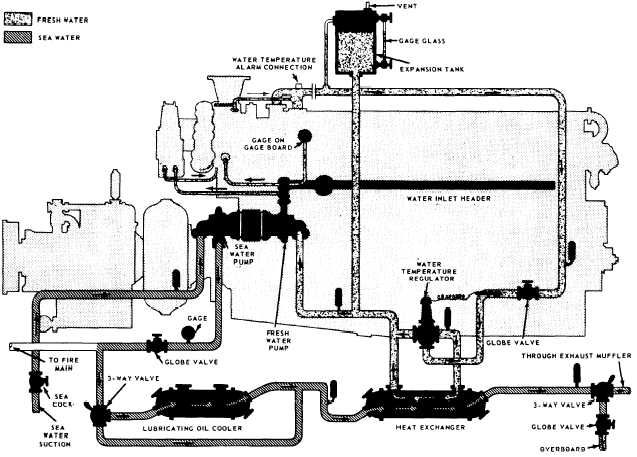ENGINEMAN 1 & C
Figure 3-11.—A cooling water system.
A gradual increase in the freshwater
temperature is usually an indication of EX-
CESSIVE SCALE on a cooler element. As scale
formation increases, there is a gradual increase
in the pressure difference between the inlet and
outlet of the heat exchanger. Scale deposits
generally form faster on the saltwater side than
on the freshwater side, because of the greater
amount of dissolved salt present in the water.
Complete prevention of scale formation is not
possible, but steps can be taken to reduce its for-
mation by using proper cleaning methods and pro-
cedures. Seawater discharge temperature should
be maintained below a specified limit (130°F),
because the rate of scale formation is increased
as the temperature increases. The water used in
closed cooling systems must be as pure as
possible. Distilled water is recommended for a
freshwater cooling system, but since distilled water
is not absolutely pure, additional steps must be
taken to control acidity and alkalinity. The treat-
ment used to control these factors will not remove
scales already formed, but it will prevent further
precipitation of scale-forming slats. You will find
details for water treatment in closed water systems
in chapter 233, NAVSHIPS Technical Manual,
and in most engine instruction manuals.
Not only the hard deposits chemically
precipitated from the circulating water, but also
such items as marine life, grease, and debris of
various types may CLOG OR RESTRICT
COOLER ELEMENTS. The principal causes of
3-12
121.11


